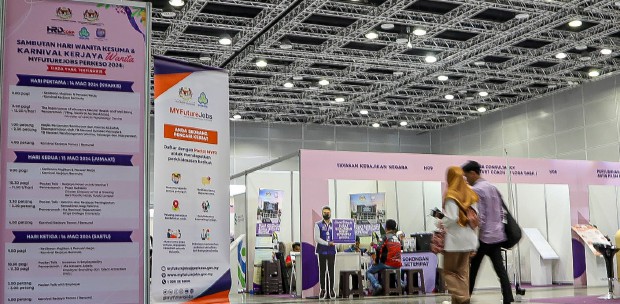KLUANG: Datuk Seri Dr Ahmad Zahid Hamidi wants the country's agriculture sector to increase their minimum wage to attract local workers, thereby avoiding dependence on foreign labour.
The Deputy Prime Minister said it is the government's intention to reduce the number of foreign workers in the country, including in the 3D sectors, namely dirty, dangerous, and difficult, in the long term.
He said the Human Resources Ministry and the Home Ministry have been instructed to monitor the issue.
"Previous cabinet meetings have discussed the issue of dependence on foreign workers, and it is the government's consideration to prioritise local labour. However, local workers are less interested in 3D sectors due to low wages.
"Therefore, in the long run, the government intends to reduce foreign workers, including in the 3D sector, but there needs to be an offer (to increase) the minimum wage to prevent shortages in vegetable supplies, as well as in the construction sector," he said.
He said this during a press conference after officiating the Majlis Santunan Kasih Ramadan 1445H at the Masjid Jamek Layang-Layang compound, Simpang Renggam, here, on Thursday night.
Yesterday, Berita Harian reported that the country's vegetable production is expected to be affected and decline by up to 40 per cent starting next month, thus causing prices to soar due to a critical labour shortage crisis.
The Federation of Malaysian Vegetable Growers chairman, Lim Ser Kwee, was reported to have said that this is following the government's announcement to cancel unused foreign worker quotas before March 31.
It is feared that this will cause vegetable prices in the market to suddenly increase due to reduced supplies and the inability to harvest garden produce as usual, following a critical labour shortage.





